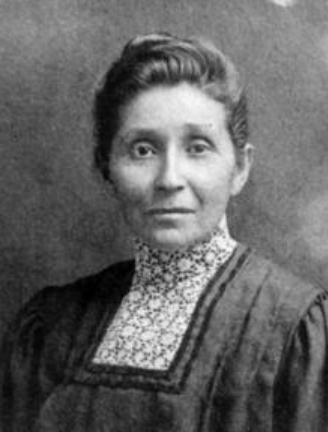Civic Center
Liberator in History: Dr. Susan La Flesche Picotte
November is National Native American Heritage Month. A time to honor the first peoples of this land and the legacies they left for all of us. Among them stands Dr. Susan La Flesche Picotte, a woman whose compassion and determination overcame what would seem to be insurmountable obstacles.
Born in 1865 on the Omaha Reservation in Nebraska, Susan grew up watching her community struggle for fair treatment and basic dignity. When she was still a child, she witnessed a Native woman die because a white doctor refused to help her. That moment shaped her life—it was then she decided she would become a doctor, one who would never turn anyone away.
At a time when Native Americans were denied citizenship and women couldn’t vote, Susan, nonetheless, pursued higher education. She attended the Hampton Institute, one of the nation's first and finest schools of higher education for non-white students, then entered the Woman’s Medical College of Pennsylvania. In 1889, she graduated valedictorian, becoming the first Native American to earn a medical degree.
Her calling was to return home to the Omaha Reservation to serve her people. She traveled miles on horseback, attending to the sick, the poor, and the forgotten. She treated over a thousand patients, advocated for public health, fought tribal alcoholism and disease, and educated families about hygiene and wellness long before those ideas took hold nationally. Her heart for healing extended beyond medicine—she also pushed for social reform and equality for Native people.
In 1913, after years of tireless fundraising, Susan fulfilled her dream of opening a hospital in Walthill, Nebraska. It was the first hospital built for an Indigenous community without federal funds. She died just two years later, but her hospital still stands, now a National Historic Landmark, as a testament to what one woman’s courage can build.
Susan La Flesche Picotte’s work was nothing short of liberation: she freed lives from the grip of disease, freed her community from the margins of the healthcare system, and freed the idea that a Native woman could shape her destiny and her people’s future. In her time and ours, her example reminds us that liberation begins when someone stands up, studies hard, serves kindly, and refuses to let the rules define their worth.


















Slipstream
What an amazing story. She probably received little or no recognition in her lifetime, except from her grateful patients. That was probably all she wanted anyway—for her people to know that someone cared for them in their time of need. Thanks honoring her by sharing her story.
Well Street
As a catalyst for her mission of becoming a doctor, I wonder how closely to her heart she held the memory of the white doctor refusing to administer treatment to the Native American woman over the years.
The word that came to my mind when learning of this courageous trailblazer was "indefatigable"—having a capacity for persistent effort; not tiring or relenting.